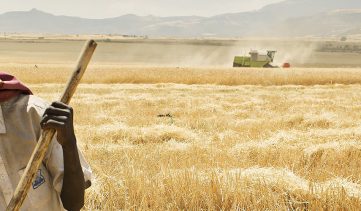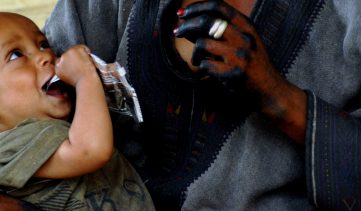Rwanda’s economic progress in the 20 years since its devastating civil war and genocide has been well-documented. The country has also dramatically reduced its hunger levels, making one of the biggest improvements in hunger scores in the last 15 years, according to the Global Hunger Index. However, challenges remain—30 percent of the population is undernourished according to the Food and Agriculture Organization and more than 44 percent of its children suffer from stunting.
The country’s strong leadership has had a major role in its rebirth, creating policies that promoted inclusive economic growth. The government is determined to accelerate progress, toward ending hunger and undernutrition—Rwanda is one of four initial Compact2025 focal countries. Prime Minister Anastase Murekezi is a member of Compact2025’s Leadership Council, and Minister of Agriculture and Animal Resources Gerardine Mukeshimana spoke at the Initiative’s launch.
IFPRI Director General Shenggen Fan and IFPRI Head of Partnerships Teunis Van Rheenen recently met with Minister Murekezi in Kigali and a number of high level officials. During their meeting, Minister Murekezi asked an unexpected question:
“Why not 2020?” He asked, noting that with the right support, Rwanda could meet the Compact2025 goal five years earlier.
According to Minister Murekezi, Rwanda is particularly interested in scaling up successes from its many programs. Compact2025 aims to do exactly that. The initiative will look at existing programs in Rwanda and assess how best to support them by improving implementation, setting priorities, and increasing coordination—all through a focus on research, data, and innovation.
Minister of Health Agnes Binagwaho, in a separate meeting, emphasized the need to work with existing organizations and find solutions beyond agriculture. A pediatrician by training, Minister Binagwaho explained the shared vision by Rwanda’s leaders, in a recent interview.
“My target is not my grandchild,” Dr. Binagwaho said. “My target is the child of the poorest woman in Rwanda, because when she is served, that means everyone else will be as well.”



